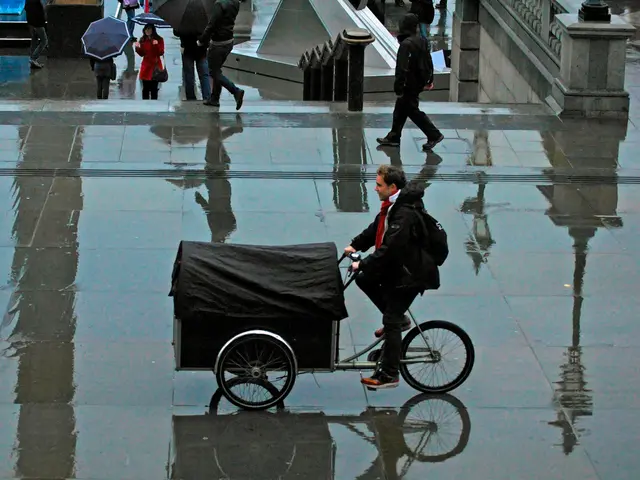Controversy Regarding Germany Ticket Prices - Federal States Rebuke Federal Government's Decision - Conflict over German train ticket costs - States condemn federal administration for high fares
Germany Ticket Price Increase: A Looming Controversy
The Germany Ticket, a nationwide public transport pass that has been in use since May 2023 and is currently utilized by around 14 million people, is expected to undergo a price increase in the coming year. This potential adjustment has sparked a heated debate among political figures, with concerns about funding and affordability at the forefront.
Brandenburg's Minister of Transport, Detlef Tabbert, and North Rhine-Westphalia's Minister of Transport, Oliver Krischer (Greens), have both expressed their concerns about the financial security of the Germany Ticket. They blame the federal government for not showing enough interest in relieving rail customers by providing additional funds. However, the federal government has not publicly committed to offering extra financial support for the ticket beyond the promised 1.5 billion euros.
The key point in the negotiations is how expected additional costs for transport companies will be offset. A draft resolution for the transport ministers' conference suggests that countries may provide 1.5 billion euros annually for the Germany Ticket from 2026 to 2030, provided that the federal government also contributes at least 1.5 billion euros per year for the same period.
The price adjustment will be based on a cost index to be developed by the transport ministers' conference by autumn 2025. This index will reflect personnel and energy costs, determined after consultation with the industry. The draft resolution also includes a fixed price mechanism, effective from 2027.
Without a dynamic increase in funding from the federal government and states, a financing gap of 800 million euros is expected by 2026. There is no majority among the countries for paying a higher share than the federal government. Rhineland-Palatinate's Minister of Transport, Katrin Eder (Greens), has criticized the federal government for not keeping its promises regarding the Germany Ticket, stating that the federal government is not increasing its share in a way that allows the price to remain at 58 euros.
The federal government, represented by a state secretary, is participating in the talks in Munich. Schnieder, the federal government's spokesperson, maintains that the goal of maintaining the Germany Ticket will be upheld. Despite the ongoing debates, the Germany Ticket continues to offer nationwide travel in public regional and local transport.
As the negotiations continue, the focus remains on finding a solution that ensures the long-term financial security of the Germany Ticket while keeping it affordable for rail customers. The outcome of these discussions will significantly impact the millions of people who rely on the ticket for their daily commutes and travels across Germany.
Read also:
- United States tariffs pose a threat to India, necessitating the recruitment of adept negotiators or strategists, similar to those who had influenced Trump's decisions.
- Weekly happenings in the German Federal Parliament (Bundestag)
- Southwest region's most popular posts, accompanied by an inquiry:
- Discussion between Putin and Trump in Alaska could potentially overshadow Ukraine's concerns






